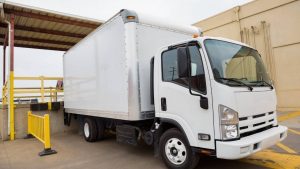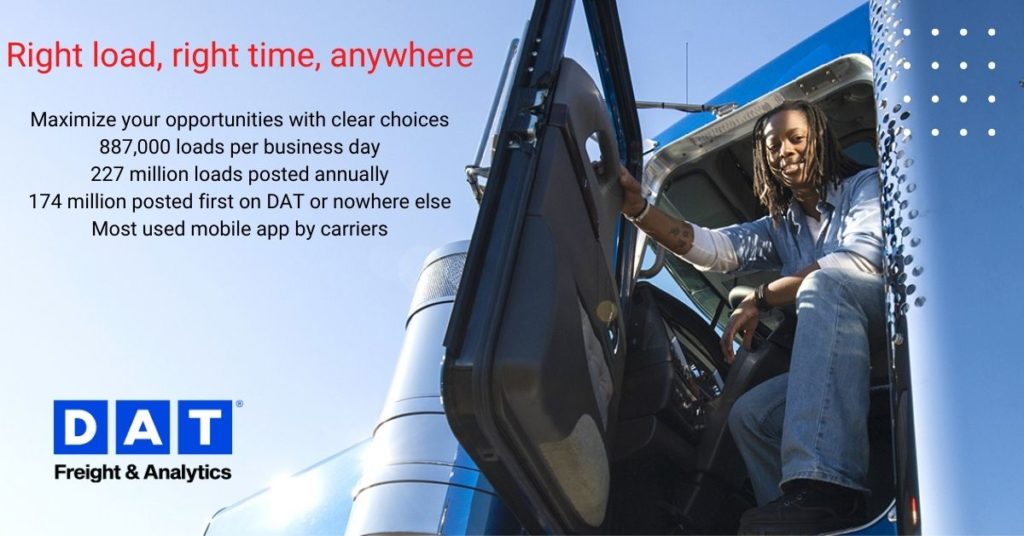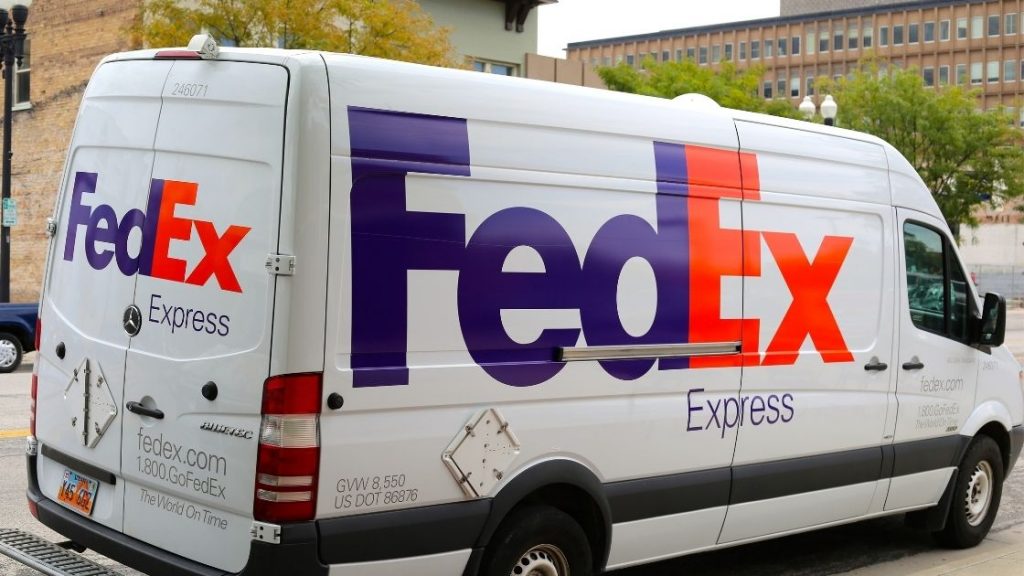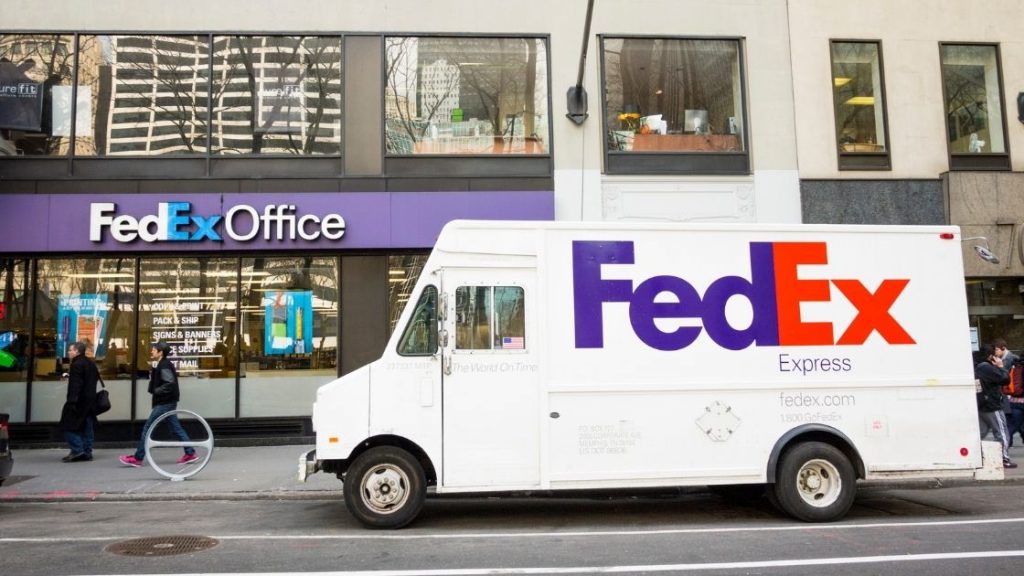If you are interested in starting a box truck business but don’t know where to begin, you are in the right place.
In this beginner’s guide, I will cover 7 essential steps to starting a box truck business. Here’s a preview of each step that we’ll cover (of course, if you want to jump ahead to any of the individual steps, just click on the appropriate hyperlink below).
- Step 1: Establish Your Business
- Step 2: Create a Business Plan For Your Box Truck Business
- Step 3: Open Up a Business Checking Account and Credit Card
- Step 4: Obtain Funding
- Step 5: Obtain Licenses, Permits and Insurance
- Step 6: Secure a Location and Hire Drivers (If Needed)
- Step 7: How to Get Contracts (Loads) for Your Box Truck Business
Before we dive into the steps, I will cover some introductory questions you may have about the box truck business, including what a box truck business is, how much box truck owners make, and how much it costs to get started.
If you want to skip the introductory stuff and jump ahead to the 7 steps, click here.
If you would like to see a condensed version of this article in video format, check out my YouTube video on the topic below.
This post may contain affiliate links. If you click on a link and complete a transaction, I may make a small commission at no extra cost to you.
The information contained in this post is for informational purposes only. It is not a recommendation to buy or invest, and it is not financial, investment, legal, or tax advice. You should seek the advice of a qualified professional before making any investment or other decisions relating to the topics covered by this article.
What is a Box Truck Business?

Before we can answer this question, we need to clearly define what a box truck is.
A box truck (also known as a straight truck, box van or cube van) is a chassis cab truck with an enclosed rectangular cargo area. They are usually 10–26 feet long and can range from Class 3 to Class 7 (12,500 lb. to 33,000 lb. gross vehicle weight rating). Source. They often have a roll-up door at the back that allows you access to the cargo area. If you’ve ever rented a U-Haul, you have driven a box truck.
A box truck business is a business where you get paid fees for delivering loads in your box truck. In most cases, the freight you deliver covers the “less than truckload” (LTL) sector, which has been burgeoning with the expansion of e-commerce. These types of deliveries can include packages, furniture, bulk food items, and other cargo that needs local delivery. Box trucks are perfect because they are designed to navigate urban areas but have enough cargo space to carry fairly large loads.
One of the best parts of running a box truck business is that if you choose the right type of box truck, you can operate one without a commercial driver’s license (CDL). More on that later.
How Much Money Do Box Truck Owners Make ?
According to Ziprecruiter, the national average pay for a box truck owner-operator is $110,275 per year, which translates to around $53 per hour. But the range can be from as low as $23,500 to as high as $293,000! How much you make will vary based on a lot of factors, including how many loads you deliver, how well you manage your expenses, and where you operate.
For example, some of the cities with the highest annual pay include Sunnyvale, CA, Santa Cruz, VA, Santa Rosa, CA, Williston, ND and Manhattan, NY. Source
How Much Does it Cost Start A Box Truck Business?
Starting a box truck business can be expensive, but it doesn’t have to be.
The biggest expense is going to be the cost of your truck. If you buy a new box truck, you can wind up paying between $25,000 to $45,000 for a light duty class 2 or 3 truck, but the larger you go, the more you will need to pay.
Below is a breakdown of new box truck costs by size.
| Box Truck Size | Box Truck Price Range |
| Light duty class 2 and 3 | $25,000-$45,000 |
| Medium duty class 4 | $35,000-$50,000 |
| Medium duty class 5 | $45,000-$70,000 |
| Medium duty class 6 | $50,000-$90,000 |
Of course, there are far cheaper options.
If you want to stick with buying your own truck, you can buy a used one at a big discount. You can get a used box truck with 200,000 miles for as little as $5,000 – $10,000. Of course, newer, lower-mileage trucks will cost more, with prices ranging between $10,000 – $40,000, depending on age, mileage and condition. Source.
You can also finance the purchase of your truck, which will really lower your initial starting costs.
If you are not wedded to the idea of buying your truck, you can rent or lease your truck. Renting your box truck is a great option if you don’t have a lot of money to put down and don’t want to be tied down to a long term commitment. Another benefit of renting is that you usually don’t have to worry about maintenance. But you pay for these conveniences.
Not only will you probably need to put a sizable deposit with the rental company, you will be paying a fixed fee plus mileage. These rental fees can be add up and will probably be much higher when compared to long term leasing costs.
Leasing your box truck is another option if you don’t want to pay high upfront costs. For a start-up business, you can expect to pay around $1,000 per month according to Trust Capital USA.
Of course, obtaining your truck is not the only cost in starting your box truck business (although it is likely to be your biggest cost). You will also need to spend some money on equipment (like a pallet jack, straps and load bars) licenses, permits, insurance, marketing, load board fees, etc.
Closing Thoughts:
When beginning, you may want to start by exploring the load boards (we go into load boards later) and see what kind of loads are out there. If you see a bunch of great loads that you can take, then maybe buying is not a bad option, but if you can’t see a lot of opportunities right away, then you may want to consider renting instead of buing your truck so you don’t have a truck just sitting there.
Ok, now that we’ve covered the introductory stuff, let’s dive into the details on how you can start your box truck business.
Step 1: Establish Your Business
Select Your Business Name and Logo
The first step in establishing your box truck business is selecting a name and logo that you like.
Having trouble figuring out a name? Try Shopify’s business name generator. It’s free.
As for a logo, you can go on canva.com and check out some of their logo templates and start from there. It’s a free option, but you will need to customize the logo templates to your liking. If you prefer a more ready-made solution, you can pay a little bit and outsource this.
One solid option is to go on Fiverr and hire someone to create your logo. There are tons of people who do this, and I have seen pricing as low as $5. For that price, you can probably try a bunch of folks and pick the logo that suits you best.
Or you can go with Looka. They are an AI-powered platform that will provide you a professional looking logo at reasonable prices.
Note: You want to make sure your name and logo are original to you and are not going to infringe someone else’s intellectual property. If you are unsure, you can check the USPTO’s trademark search tool as a starting point.
For more great strategies and tips on how to select the right name and logo for your business, check out my full article on the topic: How to Choose a Company Name and Logo [16 Key Strategies and Tips].
Create a Website For Your Box Truck Business
Don’t neglect this step. Your business needs a website, period. Especially if you are going to be offering services to the general public (e.g., offering local moving services, etc.)
Your website doesn’t have to be incredibly fancy or cost a lot of money to set up. There are a lot of resources available to help you with this.
In fact, Google allows you to build your first business profile website for free.
List Your Box Truck Business So Customers Can Find You
It is also important to get your fledgling business on Google. You can do this by listing it on Google My Business. This way, people who are searching for a box truck business in your local area can find you.
If you want to learn more about how to do this, check out this tutorial from Google.
Set Up Your Business Entity
You may want to set up a business entity like an LLC, corporation, or partnership for your box truck business. Why do this? In most cases, setting up a business entity can help shield some of your assets held outside the business entity if there is a claim against the business.
If you want to make the investment of setting up a corporation, LLC, or some other business entity, you can hire a lawyer to help you, or you can use many of the online resources that can help you set up your business entity. For a handy table comparing the different types of business entities, check out my ultimate guide to starting a business.
I like Northwest because they can get you up and running quickly and easily. They are also one of the most affordable options that I was able to find that still offered great customer service ($39 as of the date of this article).
According to their website, they are the only national registered agent service that lets you use their office address so you don’t have to use your own. That’s a killer privacy advantage.
Definitely worth checking out.

Note: This can be a fairly complicated area and you don’t want to make mistakes, so you may want to consult with your legal and financial advisors to make sure you understand the implications of setting up a business entity.
Step 2: Create a Business Plan For Your Box Truck Business
A business plan is essentially a roadmap for your box truck business.
It organizes your thoughts relating to your business into an actionable plan. Some things to include in your box truck business plan are budgeting, identifying your target market and competition, marketing strategy (how will you get loads), pricing strategy, operational plans (will you have drivers, etc.), and growth projections.
Don’t stress too much about getting your business plan perfect. I would use it more as an organizational tool at this point. You can polish it up later if you need to.
Another benefit of having a business plan is that it can help you raise money from banks and investors (if your business has high starting costs, you may need to get some financing right away). This is when you will need to refine your business plan – these folks will want to see a professional-looking business plan as part of their lending or investing process.
Don’t know how to get started? The Small Business Administration has a great tool to help you write your business plan.
Step 3: Open Up a Business Checking Account and Credit Card
You should open a dedicated checking account in the name of your box truck business. Make sure to run all business revenue and expenses (and only business revenue and expenses) through that account. This is especially important if you have a formal legal entity like a corporation or LLC because you do not want to mingle personal assets and expenses with business assets and expenses.
Why? Because you may risk losing the liability protection we discussed earlier if the business entity is deemed a sham because you did not treat it like a separate legal entity.
On a more practical note, having a separate account keeps things tidy from a recordkeeping and accounting perspective. It will definitely make things easier come tax time. It also signals credibility and professionalism when you write a check from your business account or ask someone to pay to your business account.
If you don’t know where to get started, check out Novo.
They are perfect for new small businesses because they offer no monthly fees or minimum balances, and give you unlimited ATM fee refunds. On top of that, they give you access to tons of other free perks, like major discounts on places like Stripe, Quickbooks and Google Ads.
In my opinion, they are one of the best options in the market.

Now, let’s turn to business credit cards. Credit cards can be really helpful to a new box truck business, especially if an expensive repair pops up!
First, they are often easier to qualify for than a line of credit, especially when you are a brand new business. Even if you don’t need to use it right away, it’s nice to have the funds available in a pinch. Second, it’s a great way to build your business credit rating, which will come in handy if you need to apply for a loan in the future to expand your business, etc.
Finally, you get to enjoy the benefits of points, cash back or other rewards that may come with owning your business credit card. However, just like your business checking account, avoid intermingling business expenses with personal expenses on your credit card.
Step 4: Obtain Funding

As we covered already, starting a box truck business can be costly, especially if you plan on buying a new box truck.
Fortunately, there are a lot of equipment financing options available. Just google “box truck financing” and you will see tons of options pop up. As we covered, if you prefer to rent a truck or lease it, those are also fine options and will help keep your initial costs down.
That being said, you will still need some money to get started. If you are careful about your expenses at the beginning, you can likely get started for less than $5,000, especially if you don’t buy your truck.
Want some ideas on how to get that seed money? Check out these options:
- Personal savings. You will often need some skin in the game before lenders will work with you, so having some personal savings is important.
- Credit Cards. Due to high interest rates, credit cards are probably not an ideal choice, but if you can snag a 0% teaser rate on a credit card, you can put some of the start-up costs onto that card at a ultra low interest rate (at least until the teaser rate period expires). Try to get one that lasts at least a year so you have some time to get your business off the ground.
- Friends and family. Although these people may be willing to lending you money, you have to weigh that against the risk of souring your relationship with them if things go sideways.
- Banks. Banks are a traditional source of funding for new businesses, but they will often conduct extensive due diligence and underwriting before lending to a brand new enterprise.
- Online Funding. This includes includes getting a loan using peer-to-peer lending, funding through kickstarter campaigns, using online lenders, etc.
Step 5: Obtain Licenses, Permits and Insurance
As we talked about, you can buy a box truck that does not require a CDL, so that is huge procedural advantage to operating a box truck business. Not only does that make your job as an owner-operator easier, you can also have a much bigger pool of potential drivers when you are ready to expand your business.
That being said, you will still need some basic licensing and permits.
First, if you want your own trucking authority, you will need to apply to the Federal Motor Carrier Safety Administration (FMCSA) for a Motor Carrier (MC) Number. It costs around $300 and they have a 21 day vetting process. You will need to make sure you have appropriate insurance in place and file a BOC-3 form, which basically appoints a service of process agent in the states in which you will operate.
You will also need a Unified Carrier Registration (UCR) if you are transporting cargo across state lines.
Finally, you will also need to get appropriate insurance for your box truck business. There are a lot of insurance companies that offer this type of insurance, including Progressive, Freeway Insurance, and GEICO.
In many cases, you will need to get a general business license (which is usually not too expensive or difficult to obtain), but there may be other, more specific, permits or licenses required, depending on where you live and the scope of activities you plan to engage in.
If you need help navigating all of this, your county clerk’s office is the best place to start, but if you run into a wall, you can always hire a qualified lawyer to help guide you through the process.
Step 6: Secure a Location and Hire Drivers (If Needed)
You are going to need a place to store your box truck when it’s not in use. You will want to find a location that doesn’t charge you an arm and a leg, but one that isn’t too far from your target neighborhoods. It will be a bit of a balancing act because the more remote your location, the cheaper it will be to your store your stuff, but the more you will likely pay in gas, mileage, time, and general wear and tear on your truck.
Now let’s turn to employees.
Not every box truck business will need employees in the beginning. If you are going to be an owner-operator, then you can run your own loads without any other drivers. But if you are not going to be driving or want to position your business for growth as soon as possible, you will want to hire qualified drivers.
If you are already a driver in the industry, you should know people already who can fit the bill, but if not, no worries. Here are some tips to recruit drivers:
- Have a very clear idea of what the job requires and write a comprehensive job description. If you have clean driving requirements, or other requirements, clearly list them.
- Cast a wide net to get candidates – post the job online and through local venues, ask around for referral candidates, etc.
- Interview promising candidates and select them based on their qualifications (you need to make sure you do not discriminate on a prohibited basis, like race, color, religion, sex, etc. during both the interview and hiring process).
- Make sure you have the right infrastructure in place to manage payroll.
There are tons of payroll service providers out there, so go with someone who is reputable and offers a fair price. I use SurePayroll for my business. They are affordable, reliable and a well-known player in this space.
Step 7: How to Get Contracts (Loads) For Your Box Truck Business
One of the things you absolutely need to get right is getting consistent and profitable contracts (or loads) for your box truck business.
So how do you do this? We’ve got your covered.
Here are some practical strategies to get consistent box truck loads.
Load Boards
One of the most common methods for getting loads is signing up for load boards. These are generally online boards that list loads for delivery that you can access. Many (but not all) charge a fee to use them.
The leading load board out there is DAT.
They have the most loads on their network, with hundreds of millions of loads posted annually. Because of their size and scope, they also have leading edge tech and info, including unlimited searching, instant alarm match notifications, broker credit scores and days to pay, market rates, mileage routing and much more.
I have an affiliate relationship with them and secured a deal where if you use my link, you can get a free 30 day trial with full access to their network. So, you get to try out the leading load board for a full month for free. I would note that this deal is only for new subscribers.
If you are interested, just click below to take advantage of this no-risk offer.

In addition to DAT, other load boards include Truck Stop, Get Loaded and Trucker Path. For a more comprehensive look at the best load boards for box trucks, check out my article on 8 of the best free and paid load boards for box trucks.
Amazon also has a load board. It’s another popular option, so I’ve devoted the following section to it.
Note: You can also contact freight brokers, 3PL companies and freight forwarders as well to see if they have box truck contracts or loads available for you.
How to Start a Box Truck Business with Amazon
You can start a box truck business with Amazon by joining the Amazon Relay program and taking advantage of their load board.
The first step is to go on Amazon Relay and sign up as a carrier. To qualify as an Amazon carrier, you will need to meet at least the following qualifications:
- Active DOT number
- Valid MC number
- Carrier entity type that is Authorized for Property and for Hire.
- Safety rating of “Satisfactory,” “None,” or “Not Rated” from the Federal Motor Carrier Safety Administration
- Satisfactory insurance policies in place
Required insurance policies include commercial general liability, auto liability, trailer replacement coverage, cargo coverage, workers’ comp and employer liability.
If you want to learn more about these requirements, check out Amazon Relay’s FAQ page here.
What’s great about Amazon’s program is that they are huge. The scale of their operations can provide you a consistent source of loads (with the added bonus of having a nice variety of loads available, from short distance ones to much longer ones).
Another plus is their user friendly interface. In addition to accepting loads, you can assign drivers, access Amazon’s Relay Load Board, track performance, view and download payment details and raise issues.
You also get access to their mobile app which allows drivers to view and manage the status of their loads, report any delays, and use commercial navigation tools that are suitable for truckers.
Of course, Amazon requires all carriers and drivers to use their Amazon Relay products for all Amazon loads.
Use Truck Dispatchers
You can also use truck dispatchers to find loads. Although they often perform somewhat similar functions to a freight broker, they exclusively represents carriers (that’s you). You use them to scour load boards and arrange for high paying loads that are suitable for your business.
A simple Google search of “truck dispatch services” should produce a healthy list of companies you can work with.
Get Contracts Doing Moving Jobs with Your Box Truck
Obviously, if you want to specialize in the moving business, you will need to market your business accordingly. As we discussed earlier, get your business online and make your presence known within the local marketplace.
You can also get moving jobs using site like taskrabbit, thumbtack, homeadvisorpros.com. You can also check out specialty moving sites like Dolly.
Rent Out Your Box Truck
Another way to make money (without even doing a load yourself) is renting out your truck to folks who need it. You can advertise your vehicle’s availability on sites like coop.com. They are a Ryder company so pretty reputable.
Another option is fluidtruck.com. They claim you can make around $15,000 per year for box trucks that are 19′ long or less and $25,000 per year for trucks that are 20’+.
It can be nice way to earn some passive income with your box truck.
Ultimately, you want to experiment with various marketing strategies – you may be surprised at what works best.
For more great strategies to get box truck contracts (loads), check out my article on How to Get Box Truck Contract [9 Strategies that Work].
Conclusion
So there you have it – 7 steps to starting a successful box truck business.
Hope this has been helpful. If you want to learn how to make passive income in the trucking business, check out my article on trucking investing for passive income. We cover three different ways to do this, with some pretty unconventional ideas. I think you will find it an interesting read.
For the ultimate guide to transportation business ideas, check out article on the topic here. I discuss over 30 business ideas that you can start in the transportation industry (with helpful info and tips on how to begin). We cover businesses you can start with semi-trucks, box trucks, dump trucks, cargo and passenger vans, pick-up trucks and even regular old cars. So whatever your budget and experience, there will be ideas that can work for you.
For more targeted articles on other businesses in the trucking industry, check out my articles on how to start a dump truck business and how to start a dumpster rental business.

